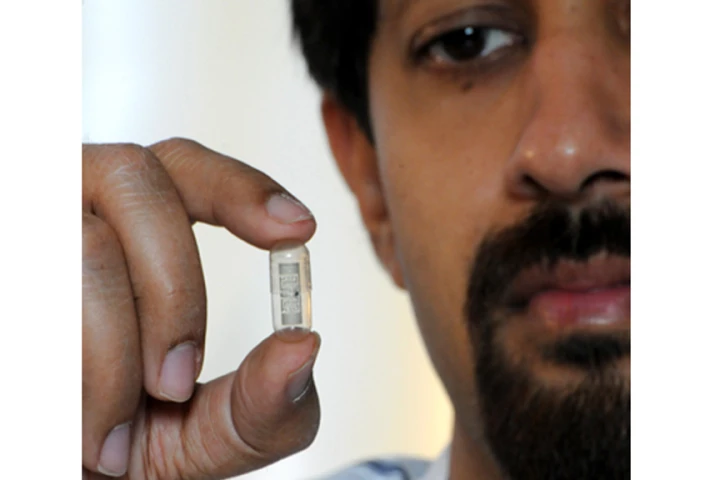University of Florida
-
The Brain Drone Race takes the already impressive technology of thought-controlled drone piloting and gives it an edge, imploring pensive pilots to will their drones across the finish line ahead of the competition.
-
Estrogen is important in keeping the brain healthy and allowing memories to form, but its effects lessen as women age. A team of researchers from the University of Florida is looking to improve the situation, testing a gene therapy method to return memory function in laboratory rats.
-
Scientists from the University of Florida have found that a bacterium found in deep-sea regions could help convert C02 into bicarbonate and so help reduce emissions. More research is needed on how to scale it up to an industrial setting.
-
Unfortunately, because tooth-grinding occurs when we're sleeping, many people don't even realize they're doing it. That could be about to change, however, thanks to the development of a bruxism-detecting mouth guard.
-
There's a host of reasons people might reach for an artificial sweetener rather than real sugar, though its cancer-fighting properties are unlikely to be one of them. But new research shows that the common sugar substitute known as saccharin could hamper the growth of particular cancers.
-
Human waste produced on space missions is currently stored in containers before being loaded into cargo vehicles that burn up as they pass through Earth's atmosphere. Now researchers have found a better use for the material, by developing a process to turn it into rocket fuel.
-
Wade Yang from the University of Florida is taking a different approach to allow those with allergies to eat peanuts. Rather than altering the body's response to peanut allergens, he is altering the peanuts themselves.
-
A scientist is developing tiny airplanes and submarines, that could study hurricanes by being carried along with them.
-
Nanorobots developed by University of Florida researchers succeeded in clearing the Hepatitis C virus and could be used to treat cancer and other viral infections.
-
Doping graphene with trifluoromethanesulfonyl-amide (TFSA) has enabled researchers at the University of Florida (UF) to set a new efficiency record of 8.6 percent for graphene solar cells.
-
A new paper thin film adapted from flat screen television technology has been developed that can convert infra red light into visible light and could apply night vision cheaply to car windshields, phones and even eye glasses.
-
Researchers have added a tiny microchip and digestible antenna to a standard pill capsule that automatically alerts doctors when the pill has actually been ingested.
Load More











